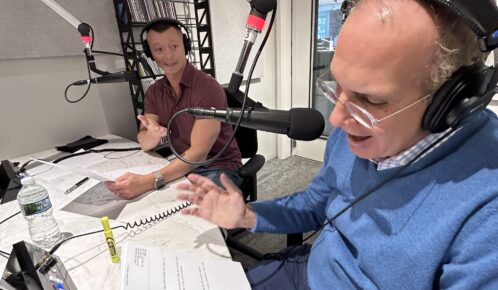A civil rights violation results when law enforcement and other government officials engage in misconduct in violation of a person’s provided rights. In the event of a civil rights violation in Chicago, you may be able to recover compensation from the responsible individuals or entities.
Table of Contents

What Is Considered a Civil Rights Violation?
A civil rights violation is an act, threat, or use of force that infringes upon a person’s constitutionally granted rights and protections. Different types of individuals could engage in a form of misconduct that constitutes a civil rights violation. Even if the misconduct doesn’t cause physical harm, it could count as a violation that warrants compensation for damages.
Often, these cases are difficult to prove, making hiring a civil rights lawyer necessary to maximize your chances of success.
What Are Civil Rights?
Civil rights are specific human rights that include the right to life, property, and other freedoms. These rights help protect people against unfair treatment based on disability, gender, race, religion, and national origin in areas such as housing, access to public facilities, and employment. Any party that infringes upon these rights is guilty of a civil rights violation in the eyes of the law.
Your civil rights also protect you from general unfair treatment at the hands of law enforcement. For instance, police officers could be guilty of civil rights violations if they use excessive force, violate department protocols when pursuing suspects, make false arrests, or otherwise go against the policies and procedures they must follow.
Civil Rights vs. Civil Liberties
What is the difference between civil rights vs. civil liberties? Where civil rights protect against discrimination, civil liberties are common constitutional rights that U.S. citizens benefit from under the U.S. Constitution and Bill of Rights.
Specific types of civil liberties include:
- Freedom of speech and expression
- Freedom of privacy
- Freedom of assembly
- The right against unreasonable search and seizure
- The right to an attorney
- The right to due process
Civil liberties deal with the basic freedoms that all individuals have, while civil rights protect individuals from discrimination.
Do Civil Rights Cases Have to Involve an Injury?
You might wonder whether you need to have suffered a physical injury in a civil rights violation to qualify for a claim. As long as someone has committed a civil rights violation against you, you may be able to prove this violation and recover any resulting damages.
Depending on the severity and nature of the civil rights violation, it may also be possible to instill more extensive change. For instance, a violation of civil rights could lead to new policies or laws that further protect individuals from similar instances of discrimination.
If a civil rights violation results in a physical injury, you may also be able to file a claim against the liable party for compensation under injury law.
Recoverable Damages in Civil Rights Cases in Chicago
There are multiple types of damages that individuals could recover in civil rights cases in Chicago. The three main types of damages in these cases include economic, non-economic, and punitive damages. Knowing more about each type of damages can help you determine how much your case is worth.
Economic Damages
There are different types of economic damages that victims of civil rights violations may recover. These damages cover the monetary losses that you might suffer because of a violation. Some examples of economic damages in these cases include medical bills, lost income, out-of-pocket costs, and confinement in jail, prison, or other types of penal institutions.
Non-Economic Damages
These damages cover the types of personal losses you may have suffered due to a civil rights violation. They differ from economic damages in that they aren’t as easy to calculate, but there are means of quantifying these damages.
Non-economic damages may include physical pain and suffering, psychological trauma and distress, anxiety and depression, humiliation, and other negative experiences resulting from the violation.
Punitive Damages
Another rare type of damages that civil rights violation victims may recover is punitive damages. While economic and non-economic damages intend to provide compensation to victims, punitive damages have the goal of holding the liable party accountable and punishing this person or entity. The ultimate goal would then be to deter this party and others from committing the same type of civil rights violation in the future.
Special circumstances will enable plaintiffs to seek punitive damages. To begin with, the plaintiff would need to prove that the liable party acted with reckless indifference or malicious intent when committing the civil rights violation. Depending on the situation, punitive damages may be the primary focus in a civil rights case if the offending party’s behavior is egregious, while the monetary and non-monetary damages are smaller.
If you’re not sure what kinds of compensation you may be able to recover based on the damages in your case, a lawyer can help you identify and calculate them.
How Long Do You Have to File for Civil Rights Violations?
Like other types of civil cases, you have a limited amount of time to file a civil rights complaint and begin a potential lawsuit. According to the U.S. Department of Health and Human Services (HHS), you have 180 days to file before your case is no longer viable. You will likely need to file this complaint with a state or federal agency prior to beginning a lawsuit.
For example, if an employer is behind the civil rights violation, you would file a complaint within 180 days of the incident with the Equal Employment Opportunity Commission (EEOC). A lawyer may then help you begin a lawsuit to take the case to the next level. HHS also allows people to file civil rights complaints through the Office for Civil Rights (OCR), even providing an online portal to allow for the submission of complaints online.
Who Is Able to File a Civil Rights Complaint in Chicago?
Often, victims of discrimination and other civil rights violations will file a complaint, but any person or organization can file a complaint, even on behalf of victims. However, the OCR-enforced civil rights laws are the only laws that apply to these complaints. In other words, the grounds for the complaint and claims of discrimination must have to do with race, national origin, color, sex, disability, or age.
What Are the Most Common Types of Civil Rights Violations?
The Federal Bureau of Investigation (FBI) states that the most common type of civil rights violation involves those under “the color of law.” Making a civil rights violation under the color of law refers to one or more individuals abusing their positions of authority or power provided by a state, federal, or local agency.
For example, many cases involve police and other types of law enforcement, prison guards, judges, and others who have the authority of a public official. Often, civil rights violations in these cases involve police brutality and other forms of police misconduct.
Under color of law, public officials could be responsible for civil rights violations if they commit misconduct that deprives someone of the following rights:
- The right to due process
- The right to avoid discrimination for race, religion, color, national origin, or sex
- The right to avoid unreasonable search and seizure
- The right to equal protection under the law
- Freedom of protest and assembly
- Protections against cruel and unusual punishment
Other Civil Rights Violations
In addition to violations under color of law, there are other types of civil rights violations that can involve other types of people or entities. These include the following:
Denial of Employment
You may have the grounds for a civil rights case if an employer denies you employment because of discrimination. Examples of these instances could include an employer preventing you from gaining employment with a company, firing you out of discrimination, using a person’s qualities as an excuse to discriminate, or creating a hostile environment in the workplace with the goal of driving certain employees away.
Sexual Assault
Another type of violation could include sexual assault. The law that protects individuals in these cases is Title VII of the Civil Rights Act of 1964. This act renders workplace sexual harassment illegal, and it also makes it a crime to enable any type of inappropriate conduct toward employees on the basis of gender or pregnancy.
Denial of Housing
Landlords, property managers, and others who can provide housing could also be guilty of civil rights violations if they deny housing for certain reasons. An example of this would be a landlord who denies a prospective tenant housing because of the individual’s skin color or religion. In these cases, you may be able to file a complaint against the offending individual or entity with the U.S. Department of Housing and Urban Development (HUD).
Denial of the Right to Vote
If someone denies you the right to vote, this could count as a civil rights violation. People in the past have primarily seen denials when attempting to vote based on disability and race, but the Voting Rights Act of 1965 made this illegal.
Hate Crimes
Hate crimes are a type of civil rights violation that can involve people threatening to use force on, or use force on, a person on because of race, color, national origin, disability, or other characteristics.
The laws prohibiting hate crimes began in 1968 with a federal hate crimes statute. This statute made it illegal to use, threaten to use, or willfully interfere using force on individuals based on their race, color, or national origin when performing any type of federally protected activity. For instance, someone might attack someone on his or her commute to work because of race.
Over time, the laws expanded to protect individuals on the basis of familial status and disability. Laws have also made it a crime to destroy, deface, or damage property on the basis of religion or willfully interfere with the ability to practice a religion.
Today, hate crime laws also protect individuals based on sexual orientation and gender identity.
Educational Discrimination
Students with certain characteristics may undergo discrimination in different ways, often under teachers, administrative staff, or other students. There are many examples of these types of violations, such as discriminating against students by using harsher grading, suspending students for engaging in conduct that would otherwise not warrant suspension, or using offensive language toward students based on a particular trait.
What Is the Difference Between Disparate Impact and Disparate Treatment?
Two forms of discrimination that individuals might encounter include disparate impact and disparate treatment. Disparate impact discrimination involves the implementation of an apparently neutral practice or policy that has a notably negative impact on individuals of certain characteristics protected under civil law. Meanwhile, disparate treatment discrimination occurs when individuals or organizations with federally protected traits experience adverse treatment because of these particular traits.
Taking the Right Steps After an Instance of Discrimination
If you or a loved one believe a civil rights violation has caused damage of any type, you may be able to build a case. Make sure to file a complaint on time with the right agency and begin the process of building your lawsuit. You may then consult with a civil rights attorney to discuss a potential lawsuit and determine what kinds of damages you may be able to seek.
People have protections under today’s civil rights laws that make civil rights violations serious crimes that warrant compensation and, potentially, criminal charges. Taking the proper steps after an incident could help you succeed with a case and hold the offending parties accountable for their discriminatory acts.



